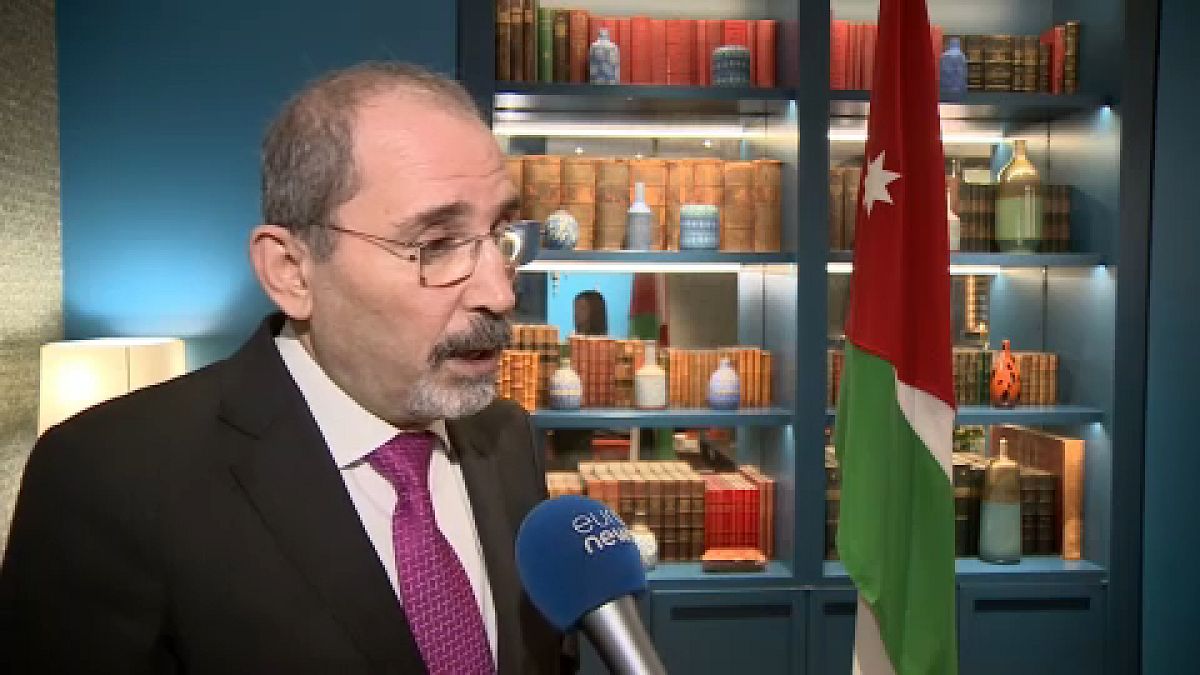"Everybody's going to have to do their bit and share their burden of the responsibility," Jordan's foreign minister said in Brussels.
Refugees are "a global responsibility", Jordan's foreign minister told Euronews, as he called for more support.
"Refugees cannot be the responsibility of host countries alone. It is a global responsibility we all should share," said Ayman Safadi.
"EU has been tremendous, solid partner for us, but again, generally there is less and less attention to the refugee crisis. This cannot be sustainable. This has to change and everybody's going to have to do their bit and share their burden of the responsibility."
Safadi is in Brussels for a conference to raise money for Palestinian refugees. Jordan is hosting hundreds of thousands of Palestinian and Syrian refugees.
The latest data from UNHCR, the UN Agency for refugees, shows that Jordan is hosting the second-highest share of refugees per capita globally.
The need for funds is critical but often they don't reach the necessary amount. That's the case of UNRWA, the UN Agency for Palestinian Refugees which had its annual pledging conference this Tuesday in Brussels. UNRWA warns that funds are "still insufficient".
UNRWA needs $800 million annually to fulfil its tasks but is still in need of $60 million for 2021.
"We're alarmed at the dwindling support for refugees....we certainly value the contribution of the EU and the European countries, but we're also worried that there is less and less support and that is impacting very negatively on refugees and on our ability to provide refugees with a dignified life," Safadi said.
He added that people need to work together to solve crises that have had a toll on several generations.
"This has to stop and the only way to do that is to work together to solve those crises, focussing on what is important, which is the human situation of people, the people themselves and work together towards solutions," he said.


